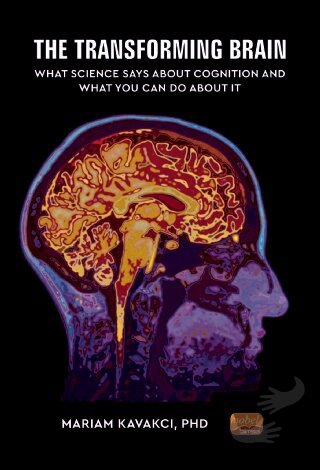The Transforming Brain What Science Says About Cognition and What You Can Do About It

Cognitive decline can mean many things and it can take on many shapes. Most of us, for instance, are at least vaguely familiar with diseases such as dementia. The effects and consequences of these diseases have already been heavily codified in our collective consciousness. We see it in movies. Maybe we’ve heard about it from our friends and relatives. Some of us may even have direct experience caring for a loved one suffering from the effects of dementia. But regardless of whether or not we’ve had direct experience with someone with cognitive impairment, we know that it can wreak havoc on not just the individuals, but also their families and communities.
However, cognitive decline can also mean something much less drastic. It can look like something as innocuous as forgetting certain words, or names, or places, or dates, or forgetting where you put your keys, or what you went to the grocery store for. It can look like depression or withdrawal. It can look like a lack of focus or attention. Whether or not you’re concerned about having dementia in the future, the fact of the matter is that, after a certain point in our lives, all of our brains and their cognitive functions are going to get worse. It’s just a matter of when and how severe. But there are things we can do to combat this, to stave off the inevitable. By taking control of your lifestyle, you can take control of your cognitive health. You can be your own cure for dementia.
| Taksit Sayısı | Taksit tutarı | Genel Toplam |
|---|---|---|
| Tek Çekim | 174,25 | 174,25 |
| 3 | 63,47 | 190,42 |
| 6 | 33,51 | 201,07 |
| 9 | 23,53 | 211,73 |
| 12 | 18,53 | 222,36 |
| Taksit Sayısı | Taksit tutarı | Genel Toplam |
|---|---|---|
| Tek Çekim | 174,25 | 174,25 |
| 3 | 63,47 | 190,42 |
| 6 | 33,51 | 201,07 |
| 9 | 23,53 | 211,73 |
| 12 | 18,53 | 222,36 |
| Taksit Sayısı | Taksit tutarı | Genel Toplam |
|---|---|---|
| Tek Çekim | 174,25 | 174,25 |
| 3 | 63,47 | 190,42 |
| 6 | 33,51 | 201,07 |
| 9 | 23,53 | 211,73 |
| 12 | 18,53 | 222,36 |
| Taksit Sayısı | Taksit tutarı | Genel Toplam |
|---|---|---|
| Tek Çekim | 174,25 | 174,25 |
| 3 | 63,47 | 190,42 |
| 6 | 33,51 | 201,07 |
| 9 | 23,53 | 211,73 |
| 12 | 18,53 | 222,36 |
| Taksit Sayısı | Taksit tutarı | Genel Toplam |
|---|---|---|
| Tek Çekim | 174,25 | 174,25 |
| 3 | 63,47 | 190,42 |
| 6 | 33,51 | 201,07 |
| 9 | 23,53 | 211,73 |
| 12 | 18,53 | 222,36 |
| Taksit Sayısı | Taksit tutarı | Genel Toplam |
|---|---|---|
| Tek Çekim | 174,25 | 174,25 |
| 3 | 63,47 | 190,42 |
| 6 | 33,51 | 201,07 |
| 9 | 23,53 | 211,73 |
| 12 | 18,53 | 222,36 |
| Taksit Sayısı | Taksit tutarı | Genel Toplam |
|---|---|---|
| Tek Çekim | 174,25 | 174,25 |
| 3 | - | - |
| 6 | - | - |
| 9 | - | - |
| 12 | - | - |
Cognitive decline can mean many things and it can take on many shapes. Most of us, for instance, are at least vaguely familiar with diseases such as dementia. The effects and consequences of these diseases have already been heavily codified in our collective consciousness. We see it in movies. Maybe we’ve heard about it from our friends and relatives. Some of us may even have direct experience caring for a loved one suffering from the effects of dementia. But regardless of whether or not we’ve had direct experience with someone with cognitive impairment, we know that it can wreak havoc on not just the individuals, but also their families and communities.
However, cognitive decline can also mean something much less drastic. It can look like something as innocuous as forgetting certain words, or names, or places, or dates, or forgetting where you put your keys, or what you went to the grocery store for. It can look like depression or withdrawal. It can look like a lack of focus or attention. Whether or not you’re concerned about having dementia in the future, the fact of the matter is that, after a certain point in our lives, all of our brains and their cognitive functions are going to get worse. It’s just a matter of when and how severe. But there are things we can do to combat this, to stave off the inevitable. By taking control of your lifestyle, you can take control of your cognitive health. You can be your own cure for dementia.











